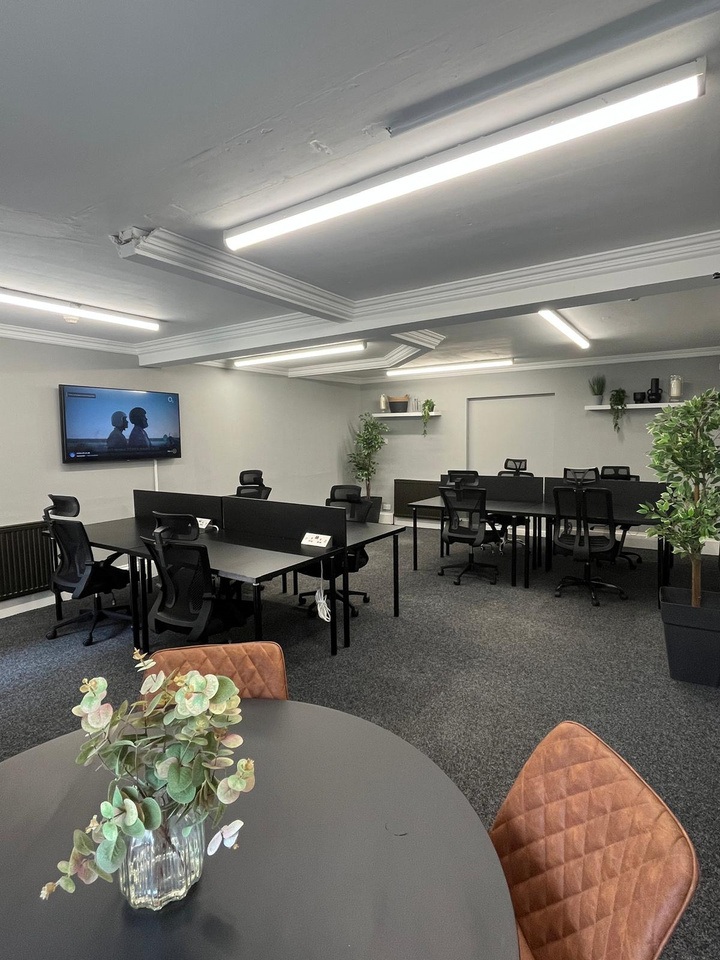The way we work is evolving, and so are our office options. For businesses weighing up a private office versus a coworking space, it’s not always a clear-cut choice. Each setup comes with its own set of advantages, depending on your team size, work style, and budget. If you’re unsure which route to take, this guide can help you find the right fit for your business.
Understanding the Basics: What’s the Difference?
At a glance, private offices and coworking spaces might seem like two sides of the same coin. Both are designed to support professionals and growing businesses, but the way they operate is quite different. Choosing the right setup starts with understanding what each one offers.
A private office is just that—a dedicated space exclusively used by you or your team. It typically comes with a lockable door, a consistent desk setup, and the privacy to conduct meetings or take calls without disruption. It’s ideal for those who value control over their environment and need a consistent base to work from.
Coworking spaces, on the other hand, are shared environments with flexible seating and access to communal amenities. You might sit next to a marketing consultant one day and a tech founder the next. They’re built for collaboration, networking, and dynamic energy—perfect for freelancers or teams looking for flexibility.
Key Advantages of a Private Office

Opting for a private office comes with a range of benefits that can support business focus, professionalism, and comfort. Here are a few of the standout perks:
1) Privacy and focus
With a dedicated workspace, your team can concentrate without the background noise of a busy coworking hub. This is especially helpful for roles that demand deep focus, sensitive conversations, or a lot of virtual meetings. You control who enters the space, which creates a more secure and comfortable environment.
For businesses that rely on confidentiality—such as legal firms, consultants, or HR departments—this level of separation is essential. It allows teams to work without interruption, think more clearly, and maintain a sense of ownership over their daily routines.
2) Professional image
A private office gives your business a polished look. It’s easier to hold client meetings in a room that reflects your brand. Many private office providers, like Quintessential Offices, offer stylish, fully furnished spaces that enhance your company’s credibility from the moment a client walks in.
Whether you’re pitching to investors, meeting high-profile clients, or conducting interviews, having a professional and consistent environment boosts confidence. It sends a strong message that your business is established, reliable, and ready to grow.
3) Consistency and control
You know exactly where you’ll be sitting each day—and so does your team. This level of predictability helps with team cohesion and efficiency. You can also personalise the space with your branding, equipment, or even a plant or two.
Having your own office also means setting your own rules—whether it’s desk layout, meeting schedules, or preferred lighting. That autonomy can improve productivity, reduce stress, and make your space truly work for your team’s unique rhythm.
Perks of a Coworking Space

Coworking spaces have gained traction for a reason—they offer a refreshing break from the traditional office model. For many professionals, they’re an inspiring and cost-effective alternative.
1) Flexibility and freedom
You can often choose from hot-desking, fixed desks, or short-term access, which makes coworking a great option for those testing new markets or working remotely. You’re not tied into long-term leases, which keeps overheads low. This freedom suits startups, consultants, and freelancers alike.
Coworking also supports modern hybrid schedules. Teams can come together when needed but still work remotely the rest of the time. It’s a low-risk way to maintain a physical presence while staying adaptable to changing work patterns.
2) Built-in community
Coworking spaces thrive on connection. Surrounded by professionals from different sectors, there are plenty of chances to network, share ideas, or find your next collaborator. It’s ideal if you thrive on social energy or want to break out of a home office rut.
This communal setup often leads to unexpected opportunities—whether it’s partnering on a new project or picking up valuable advice over coffee. Many spaces also host events, workshops, or socials, helping members feel part of something bigger.
3) All-inclusive amenities
From high-speed Wi-Fi and meeting rooms to free coffee and networking events, coworking spaces come with perks. Everything is managed for you, so you can focus on your work instead of worrying about utilities or office maintenance.
These shared resources also mean you get premium services—like front desk support, printing, and tech infrastructure—without the cost of managing them alone. It’s a convenient and efficient way to access a professional work environment.
Which Businesses Benefit from Private Offices?
Some businesses are better suited to private offices from the get-go. If your operations involve sensitive data or frequent client meetings, a dedicated space is usually the better fit. Likewise, growing teams may benefit from the structure and routine a private office provides.
Examples include law firms, financial consultants, and creative agencies. These businesses often need a quiet, uninterrupted space to carry out detailed work. In a private office, your team can collaborate easily while keeping distractions to a minimum.
It also works well for hybrid teams who want a central base a few days a week. Having a consistent, branded workspace makes it easier to maintain company culture and team cohesion—even with flexible working arrangements.
Who Thrives in Coworking Environments?
Coworking spaces shine when it comes to flexibility, diversity, and spontaneous opportunities. If you’re just starting out or work solo, the communal energy can be a major boost. You also get access to big-office perks without the big-office price tag.
Ideal users include freelancers, remote workers, and startups in their early phases. For example, a solo graphic designer might enjoy the buzz of a shared space and the networking potential it brings. Likewise, a three-person tech team might appreciate the mix of privacy and shared amenities.
Coworking can also suit larger companies expanding into new cities. A few coworking desks let them test the waters before committing to a full office. With providers like Quintessential Offices offering hybrid options, it’s easier than ever to scale up or down as needed.
Consider These Factors Before Deciding

It’s worth weighing a few key factors before you sign on the dotted line. These practical considerations can help you decide which setup matches your day-to-day operations.
1) Budget and contract terms
Coworking spaces usually come at a lower upfront cost, with rolling or short-term agreements. Private offices tend to require a longer commitment but offer more control. Decide which works best for your cash flow and growth plans.
Keep in mind that coworking costs are often all-inclusive, which means no extra bills for electricity, cleaning, or internet. Private offices may offer more room to grow, but the added costs should be factored into your decision.
2) Team size and dynamics
Larger teams may find coworking too chaotic, while solo professionals might find a private office too isolating. Think about how your team collaborates, communicates, and uses space.
If your staff regularly needs meeting rooms, whiteboards, or video calls, private offices might be more practical. On the other hand, if your team enjoys mixing with others and bouncing around ideas, coworking can add creative spark to your workday.
3) Nature of work
If your business involves lots of Zoom calls, sensitive data, or deep focus work, a private office is a clear winner. For more mobile, creative, or collaborative tasks, coworking is often the more dynamic choice.
Consider whether your workday is best supported by structure or spontaneity. Do you need to knuckle down without distraction—or do you thrive when there’s a bit of energy in the room?
Combining the Best of Both Worlds
You don’t always have to choose just one. Many businesses are now opting for a hybrid approach, using a combination of private offices and coworking memberships. This can offer the structure of a permanent space with the energy of a shared one.
For example, a company might base its leadership team in a private office while giving its sales reps access to hot desks around the country. This model supports both consistency and flexibility. It also makes it easier to attract and retain talent who value choice in how they work.
Providers like Quintessential Offices offer flexible packages that grow with your business. Whether you need a single office, coworking access, or both, there are options designed to adapt as your needs evolve.
Summary
There’s no one-size-fits-all answer when it comes to choosing between a private office and a coworking space. It depends on how your business works, what your team needs, and where you see yourself in the next year or two. The good news? You don’t have to make the decision alone.
At Quintessential Offices, we offer both private and shared workspaces tailored to growing businesses like yours. Whether you’re looking for quiet focus, creative energy, or a bit of both, we’ll help you find the setup that works. Get in touch today to explore your options and take a tour of our spaces.






